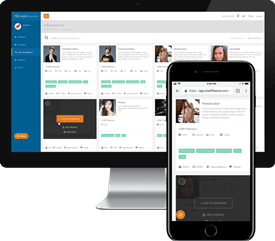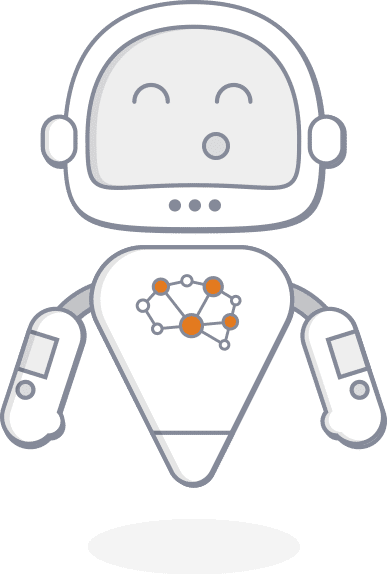Last Updated on October 26, 2021
Shannon Peel is a business influencer based in Canada who tells brand stories, designs content and connects people. Shannon is unique in her industry because she has experience in sales, marketing, advertising, investments, design and storytelling. Shannon combines these skills along with her ability to cut through clutter to create a plan of action that will help her followers and clients meet their goals. Learn more about Shannon at shannonpeel.com or you can also follow Shannon on Twitter, Facebook and LinkedIn, to name a few.
Can you tell us briefly about your background and how you got started as a business influencer?
Okay so I started in the financial industry twenty some odd years ago and my job was in marketing a financial planner. And then I work to in capital markets a bit. and I worked for myself for awhile went back into sales. I sold oil pipe and pump jacks in Calgary for a little while I learned a lot about sales and then I went to advertising and selling advertising that was great. And then, you know, everything started going digital and started learning about blogging and all that kind of stuff, became a novelist and writer, and then we moved to Vancouver. There’s a lot of work here but I found it very hard to find a position for myself so I just went out and thought “hey, you know what, I love personal branding I love telling stories” obviously I’m a novelist, so I created a personal brand for myself and then made a business out of it.
As a storyteller, what are some of the ways you channel creativity within your business and marketing consulting to provide a unique service?
Okay so like I said right now I am at an event where people are pitching their companies to investors and I find that a lot of times people don’t know how to tell their own story because they want to tell everything. It’s like they almost suddenly go I got to tell you everything all at once, right so I really like taking that and deconstructing the message that they are giving me, asking questions just like you are asking me today, and then reconstructing that in logical ways in story telling techniques in order to create curiosity and engagement with the audience instead of just telling the audience but actually trying to find out what does the audience want to know from me
On your website, you describe being able to “understand how people interact with content” as a strength. This is one of the most important pieces of influencer marketing, both for brands and influencers. Can you discuss just a couple of strategies for gaining a better understanding of how people interact with content?
The best way is to talk to people. Like today I’m here I’m talking to investors asking them “okay so what you’re looking at for a company to invest in what are you looking at in these presentations” and other times it’s “okay so what are people buying, how are they buying it”. Engaging with them on social media and I find that by engaging with them on social media I learn what they will engage on back because it becomes a two way conversation. Of course, there’s data and analytics I mean that’s the boring part, right you download the data and analytics you say okay this one was shared, this one was liked, this one was shared, and you try and build more content around that.
And you go out and find – read as much as you possibly can to learn about what stories people are actually engaging with. However, what worked yesterday doesn’t always work tomorrow it doesn’t even always work today and what worked today might work tomorrow. I have one client I run his Twitter account and we just started it but because of the topic he gets – I get a ton of like views even though he has a tiny bit of followers. Like he’s got less than two hundred followers but his views are like four thousand impressions a day, consistently which is what I get with eight thousand. And then I have another one, they just gave me an account, with twenty thousand followers they had I’m having a hard time getting that to a thousand impressions a day. So I’m learning more and more about how not just the number of followers, that doesn’t matter, and it’s about the quality of followers and how to find those quality followers and how to find out what type of information needs to be on what site. I was talking to one guy here and we’re talking about what he sells anyway once we started talking I was like well you don’t need to be on Facebook, you don’t need to be on Instagram, you know, your clients aren’t there so it’s understanding who is where and how people actually track that content.
Can you name a few of your favorite brand collaborations to-date?
Well I think my favorite one so far is IoT economist because I’m building a personal brand. He’s got an amazing international kit like the people he knows blows my mind and I’m not going to name drop because they’re that big. And it’s interesting because like interviewing him, helping him write the blog posts, promoting those blog posts, and really learning about smart cities and technology things I never knew were there and trust me it’s kind of scary. It’s like okay what will I be doing in ten years when the computers are doing my job
In your experience, what are some mistakes influencers make when trying to establish their own personal brand?
Trying to tell everything at once, being on the wrong one thinking that okay I’m going to get business by being on Facebook but I’m a b2b company, not having the platform in place the way, you know, you don’t have a website, you don’t use a Gmail email account, [and] you’re not really clear about your brand. Like the first thing I do is I give people a branding workbook and I say “okay go fill this out for me so I can understand what your brand is” and the feedback I get back is “wow I didn’t even know this about myself” so it’s real interesting. Then it’s like “okay well here’s your five values now before you post something ask yourself why am I posting it” and then if it doesn’t fit within those value don’t post it. Now that said I am guilty of making a lot of mistakes.
Where do you see influencer marketing headed in the next five to ten years?
Into AI, we’re going to be following computers. You know, I got connected with this really impressive person on Twitter and we’re talking back and forth and then I met him and he said “oh yes, you weren’t talking to me you were talking to some other person” never ever ever tell somebody that they’re not talking to you, you know, the whole balloon pops, right.
And I think that that’s really where we’re going we’re going to be having chatbots talk to us, we’re going to have chatbots doing everything, we’re going to have AI writing stuff, and people are going to feel like “Oh I’m talking to so and so look at me I’m talking to Richard Branson” no you’re not you’re talking to some bot. And it – I don’t know about you but I mean I’m older so I guess it’s just that feeling oh I’ve been duped and I really think that influencers can use too much of that. I don’t think it’s video for some people it definitely is I don’t watch video I like to scan information and see whether or not I’m even interested in consuming it. I much prefer to listen to a podcast while I’m doing the dishes than having a video going but that’s an X-Gen thing, right. Because I’m X-Gen totally different than Millennials. My kids are Zed Gen – my daughter tons of YouTube, tons of YouTube so I guess it just depends on the – there’s just going to be a lot more options available. But really technology is going to be what is telling us what the next thing is.
Note: Influencer spotlight interviews are edited for time and clarity.

Andrew is the Head of Client Services for Intellifluence and has a background in communications. He is committed to helping brands get the most out of their campaigns and is the co-host of the Influencer Spotlight series.





